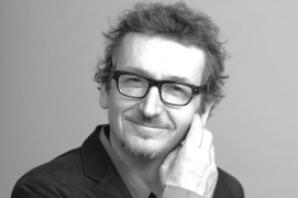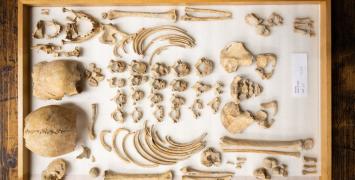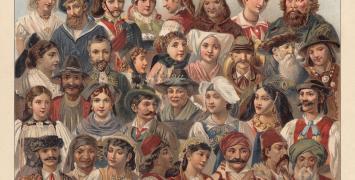Pathways to success for second-generation migrants
Many children of migrants, born in their adopted homeland, have successfully overcome the odds and enjoy ‘elite’ status with well paid jobs in EU countries. By studying these individuals, researchers hope to identify how policies and education can be changed to help more second-generation migrants achieve success.

Immigrants to the EU face greater challenges and barriers to employment than most of their European counterparts. Research has largely focused on understanding why the second generation often fail to achieve. But, what about those individuals who do reach the top and become part of the employed elite?
“The pathways taken for the successful children of migrants varies depending on which country they live in, and which employment sector they work in,” says Prof. Maurice Crul, who leads the ELITES project, funded by the EU’s European Research Council (ERC). “Through analysis of this, we can influence policy and education systems to make it easier for similar individuals to achieve success in the future.”
In focusing on the successful cases, the project has created a shift in approach, placing emphasis on systems that help immigrants to make progress. Prof. Crul argues that when you look at what gave individuals the chance to progress in their careers – not what made them fail – you discover how to create additional opportunities to help people succeed.
Overcoming obstacles
The four-year project ended in 2015 and was conducted in Germany, France, the Netherlands and Sweden. Career paths in these countries were known to develop very differently. ELITES focused on second-generation migrants of Turkish descent who have achieved success in three sectors: corporate law, business and education. The team interviewed almost 200 individuals and analysed their education and employment track record.
“We knew that the school systems and transition to the labour market worked very differently in these four countries and that people encounter different challenges when moving up the ladder,” says Prof. Crul. “We wanted to isolate what these challenges were, and to see how they differed, depending on the sector of employment.”
ELITES identified a number of differences between countries and employment sectors. For example, in Sweden interviewees typically experienced a smooth educational journey, from pre-school where they learned Swedish through to university. But their transition to employment was more difficult. Successful second-generation migrants in Germany, however, had a quite different experience: the education system and language were both major barriers. However, if they made it through, apprenticeships and internship opportunities opened up to help them get on the employment ladder.
Across the continent
This initial project has sparked academic debate and similar projects are now underway across Europe, while a book is in production bringing together all of these results. Meanwhile the journal New Diversities published a special issue in which contributing papers outline what Prof. Crul describes as “The multiplier effect”: individuals achieving employment success take small steps forward, reaping cultural and social capital at each new level. They adapt to each new environment, increasingly different to their own world, and make networks with those in that sphere.
By highlighting routes to success and typical barriers along the way in different European countries, ELITES is helping policy-makers to improve their support for migrant communities. In the Netherlands, a task force has been set up by the Ministry of Education and the Ministry of Labour. It aims to facilitate smooth transitions between finishing study and entering the workforce for those from immigrant backgrounds.
In Germany, the Netherlands and Sweden a new project aims to bring universities and employers together to find ways to break down barriers that prevent an easy transition to employment.
“ELITES was a new way of looking at things and now many academics are getting on board,” says Prof. Crul. “We want to make sure that the future does not present obstacles in the pathway to success for those of immigrant descent.”
Project website
Find more examples of projects in the brochure: Migration and asylum: The contribution of frontier research to the understanding of human mobility across frontiers




